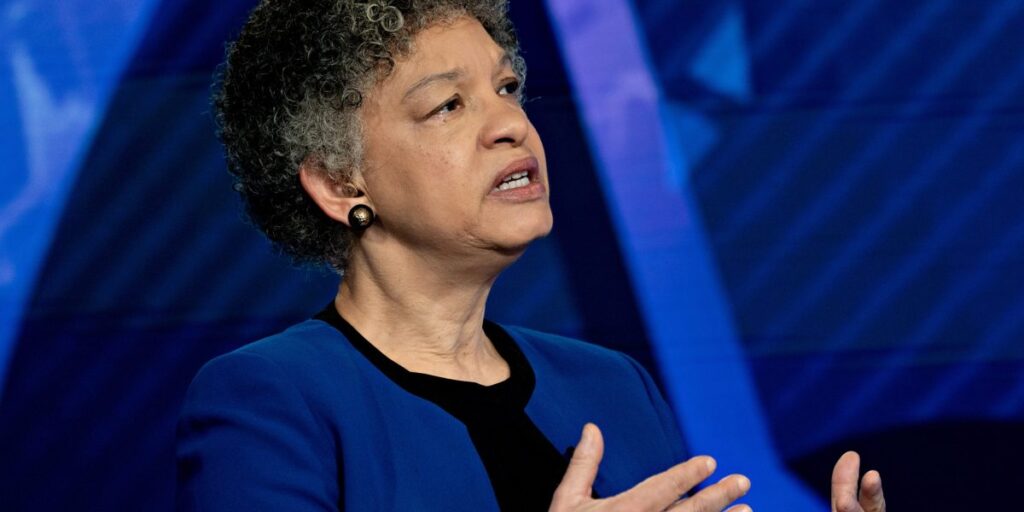
- In her first public remarks since the central bank left interest rates unchanged, Boston Federal Reserve President Susan Collins said tariffs would fuel inflation, but it might not be felt for long. She echoed Chair Jerome Powell, who said tariff-induced inflation could be transitory, but she admitted there is a threat to that expectation.
Before President Donald Trump’s election night victory, some economists warned the tariffs he promised on the campaign trail could be inflationary. Now a Federal Reserve president is in agreement.
“It looks inevitable that tariffs are going to increase inflation in the near term,” Boston Federal Reserve President Susan Collins said Thursday during a fireside conversation, according to Bloomberg. “My kind of modal outlook would be that that could be short-lived.”
However, she acknowledged the threat of such a forecast. “There are risks around that, and depending on how things unfold, it may be more persistent and a larger increase,” Collins said.
This was the first time Collins spoke publicly since the Fed’s latest meeting where it left interest rates unchanged between 4.25% and 4.5%. Collins appeared to echo comments made by Chair Jerome Powell in his post-announcement press conference, where he said tariff-induced inflation could be “transitory,” and that was his base case. The central bank is currently embracing a wait-and-see posture rather than changing its policy based on plummeting sentiment. Collins suspects the Fed will hold interest rates steady for longer, according to Reuters, which she called an appropriate plan of action.
The last time the central bank called inflation transitory, it was wrong. Pandemic-era inflation only got hotter and hotter until it reached a four-decade high almost three years ago. The Fed raised interest rates to tame scorching inflation. Once there were signs of cooling, the Fed started to cut rates. But now, the central bank has left interest rates untouched for the second time this year because of uncertainty stemming from a policy whirlwind of on-again, off-again tariffs. Still, inflation came in cooler than anticipated in February. Consumer prices rose 2.8% compared to a year ago, but tariffs and trade wars hadn’t materialized in the data.
At the moment, there appears to be two arguments when it comes to the tariff-inflation debate. On one hand, tariffs could cause a one-time shock to prices, or it could be a much more severe longer-term blow to prices that hurts consumers. What is clear is when businesses face an extra tax on imported goods, they tend to pass that cost onto consumers. This is why economists see the central bank’s approach as either appropriate or risky.
“The risk is that tariffs could have a longer-lasting effect on inflation if additional tariffs are added later this year,” Apollo Chief Economist Torsten Slok told Fortune following the Fed decision.
But Moody’s Chief Economist Mark Zandi seems to feel otherwise.
“Tariff-induced inflation is likely to be more transitory than not, but it is impossible to know this with any confidence,” Zandi said, adding that “because there is no way to know, the appropriate response from the Fed is to sit on its hands, hold rates unchanged, and wait to see how the trade war and its fallout play out.”
This story was originally featured on Fortune.com







